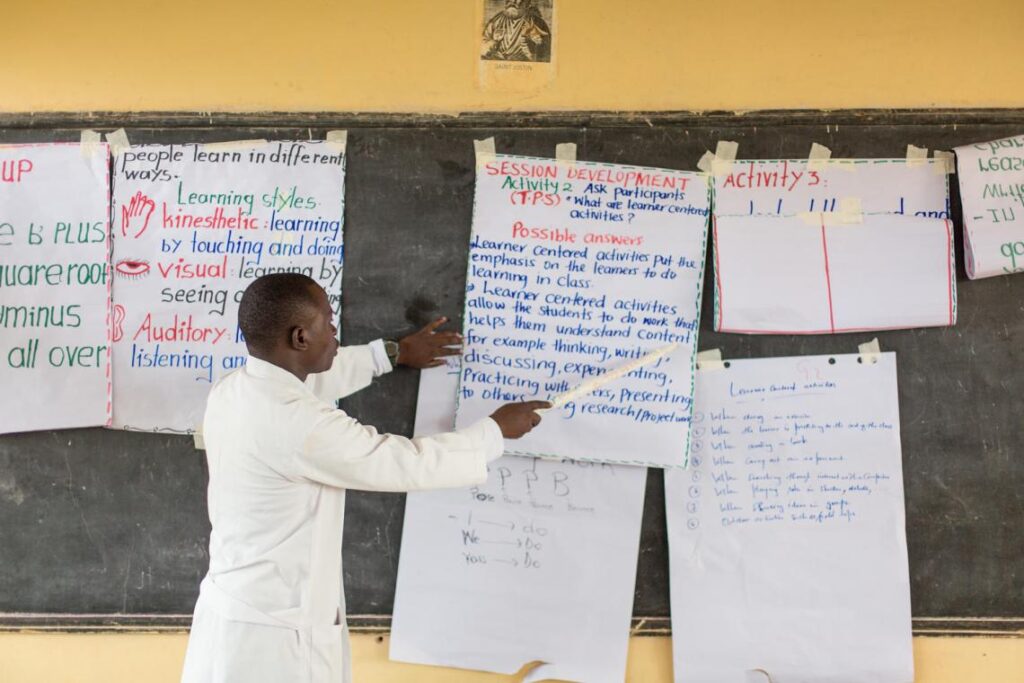- About Ramapo
- Academics
- Admissions & Aid
- Student Life
- Athletics
- Alumni
- Arts & Community
- Quick Links
- Apply
- Visit
- Give
Kwibuka 30, Panel 15
Teacher educating his fellow teachers in Rwanda on how to develop lessons for students with different learning styles.
Education in Rwanda
Before the 1994 Genocide Against the Tutsi in Rwanda, there were problems within the education system with racism. Education can play a significant role in shaping society, which can be for better or even for worse. Education can be used as a means to prevent or encourage of a genocide. After the 1994 Genocide Against the Tutsi in Rwanda, the country transformed its educational system. The education system focused on inclusivity for all Rwandan children, regardless of ethnic background, gender, disability, and more. Rwanda’s focus within education is for all students to succeed in learning. For students to learn effectively, it is important for teachers to become educated on how to teach. It is essential for educators to learn about different learning styles. Training for educators is essential for inclusivity. Without training in disability and diversity, there would not be effective teaching happening. Training comes with professional development as well. Education can be used as a tool for rebuilding peace; however, education can be used as a tool for building violence. Before the genocide, education was used differentiate between groups within Rwanda, elevating Tutsi above others, which harmed society. Now national curricula promote unity as a shared value. Students learn tolerance. Adding tolerance and appreciation of diversity helps shape students’ beliefs and attitudes and reduces prejudice through the development of strong social skills. Education can be used as a tool to promote peace, democracy, rebuilding of social relations, and much more.
Quick Links
Rwanda Education Assistance Project
The Role of Education in the Healing Process in Rwanda
Bibliography
“Equal Opportunities to Learn: Towards a More Inclusive Education in Rwanda.” Inclusive Education Initiative.” February 16, 2022.
Hodgkin, Marian. “Reconciliation in Rwanda: Education, History and the State.” Journal of International Affairs 60, no. 1 (2006): 199–210.
King, Elisabeth. “Educating for Conflict or Peace: Challenges and Dilemmas in Post-Conflict Rwanda.” International Journal 60, no. 4 (2005): 904–18.
Mafeza, Faustin. “The role of Education in combating genocide ideology in post-genocide Rwanda.” International Journal of Education and Research 1, no. 10 (2013): 1-10.
Photo Source
Copyright ©2025 Ramapo College Of New Jersey. Statements And Policies. Contact Webmaster.


Follow Us!